In Celebration of International Women's Day: An Assortment of Past Projects Designing for Women and Girls
In honor of International Women’s Day today, we’ve assembled a collection of projects designed by current students and past alumni—each centered around designing for women and girls. [Pictured above: Ailun Sai, Class of 2017]
At a time when the maternal mortality rate in the US is soaring, Victoria Ayo's thesis, Birth Reborn: Using Design to Address Barriers to Equitable Maternal Care for Black Women, aims to give voice and power back to black women and mothers. Her project explores how design can build more awareness, facilitate the integration of ancestral knowledge, leverage the community, and help eliminate barriers to equitable birth outcomes. Victoria proposes new realities for collective care, bringing the wellbeing of mothers out of isolation and into solidarity.
Stephanie Gamble’s thesis, Grandma’s Teeth: An Exploration of Feminine Voice, Power and Reclamation, is an in-depth examination of the physical, verbal, and emotional enforcement mechanisms of misogyny. Drawing from her own grandmother’s experience with the violence of misogyny, Stephanie designed a provocative body of work that interrogates and makes tangible how the enforcement mechanisms of misogyny are used to control and silence women. This thesis work proposes solutions that invert current power dynamics and challenge cultural values as a way to incite dialogue, ignite anger and impress upon men the substantial toll these experiences have on the daily lives of women.
Pantea Parsa grew up in Iran, where she encountered a confusing dichotomy: traditional Iranian society taught her that motherhood is the ultimate fulfillment for women, but, at home, she absorbed a different perspective. Her mother was an independent and successful woman who refused to be defined only as a mother and a wife. Pantea strived to be like her mother from a young age and ultimately decided that she doesn't want to become a mother in the future. However, should she become pregnant, she couldn't ignore the harsh reality that she would have to find an illegal back-alley abortion. For her thesis, By Choice: Designing the Abortion Journey, Pantea designed a suite of products that address the abortion journey from different lenses—including access, community, activism, and male accountability.
Yuko Kanai’s thesis, Rich Bitch: Feminine Strategies for Financial Power, rejects the expectation that managing money is a masculine endeavor. Through addressing the emotional facets of money, breaking down the taboos of financial discussions, and presenting alternative models of financial success, her thesis aims to elevate femininity as a source of power rather than a handicap. The proposed strategies work at the level of community, the household, and the individual psyche as leverage points to address why financial illiteracy is more pronounced among women.
As an avid climber and hiker, Alexia Cohen found herself interested in examining the role of women in the great outdoors. When she started climbing three years ago, she attended an event organized by Flash Foxy—a group of women dedicated to celebrating and empowering women climbers. Through this event, she met her climbing partner Janice, who as Alexia recalls “quickly became a friend and a mentor. Her guidance and support helped me develop my climbing technique and become more comfortable in this new space.” She also began to understand the importance of community and women mentors in traditionally male-dominated spaces.
Carly Simmons’s thesis, The Mother Load: Owning Motherhood and Offloading Burden, aims to redistribute the burden and responsibility typically held by women and mothers to other individuals in their social network. In her research, Carly engaged with over two dozen new mothers who expressed feeling an absence of community support during and after pregnancy.
Through her thesis, Hysterical Women: Designing Experiences to Counter the Current Gaslighting Healthcare System, Rhea Bhandari aims to elevate the healthcare experience of women by designing more efficient and empathetic diagnostic and treatment strategies, and providing women with new tools with which to track and communicate their symptoms.
Paint is an app that allows patients to document and describe their symptoms in more than words. As part of her thesis, Hysterical, second-year student Rhea Bhandari designed Paint to help women advocate for themselves while navigating a healthcare system that often dismisses their symptoms, leaving them misdiagnosed and in avoidable pain.
Products of Design is very proud to have contributed to this week's production and release of two Valentines Day videos from Racket—the grassroots organization dedicated to menstrual health and reducing shame. We've worked with Racket over the past year, and during our recent "Rackethon," one of our first-year students, Gustav Ole Dyrhauge, came up with a simple and charming notion to create "a flower bouquet out of common menstrual hygiene products."
On the afternoon of Saturday, September 16, the students of the MFA Products of Design department conducted a hackathon for RACKET—a grass-roots organization engaged in work around the topic of menstrual health. After a comprehensive briefing from Racket founders Caroline Angell and Margo Seibert, participants dove into four focus areas. Reimagining the kit, changing the conversation around mentruation, social media strategy, and policy.
On Sunday, the MFA Products of Design helped out the amazing grass-roots organization Racket by providing space for one of their epic "packaging" sessions. In only three hours, a cadre of volunteers met at the department and packed kits of over 25,000 products—a record according to Racket founders Margo Seibert and Caroline Angell.
On the evening of September 26th, representatives from the Veterans Experience Office and the New York Harbor Healthcare System (VA Hospital) came to Products of Design to participate in a group discussion around women veterans. (This semester, the Design Research and Integration class is doing a 15-week project on the issues surrounding women vets.) Topics ranged from the perception of women military in our society, to their unique needs in accessing healthcare services throughout the VA system, to stakeholder eco-system mapping—trying to identify the main players in the area, along with learning about their top needs and interactions.
As part of NYCxDesign, the students of the MFA in Products of Design at the School of Visual Arts present Engender, a roving and interactive exhibition that explores the role of design in the construction of gender identities. The exhibition’s eight interventions deconstruct simple artifacts and gestures of our gendered world and invite visitors to play along in a performative game of gender mash up and reconstruction.
"Bud" is a smart pregnancy companion that acts as a support system for pregnant women. Designed by Vidhi Goel and Eliz Ayaydin, the device emerged from the design brief of "Reimagining home monitoring" in the Product, Brand & Experience course of the MFA Products of Design Program. The project celebrates pregnancy for parent and child—a precious time that deserves care and attention, and a product category not yet addressed in the from a technology standpoint that is user-centric and humanistic.




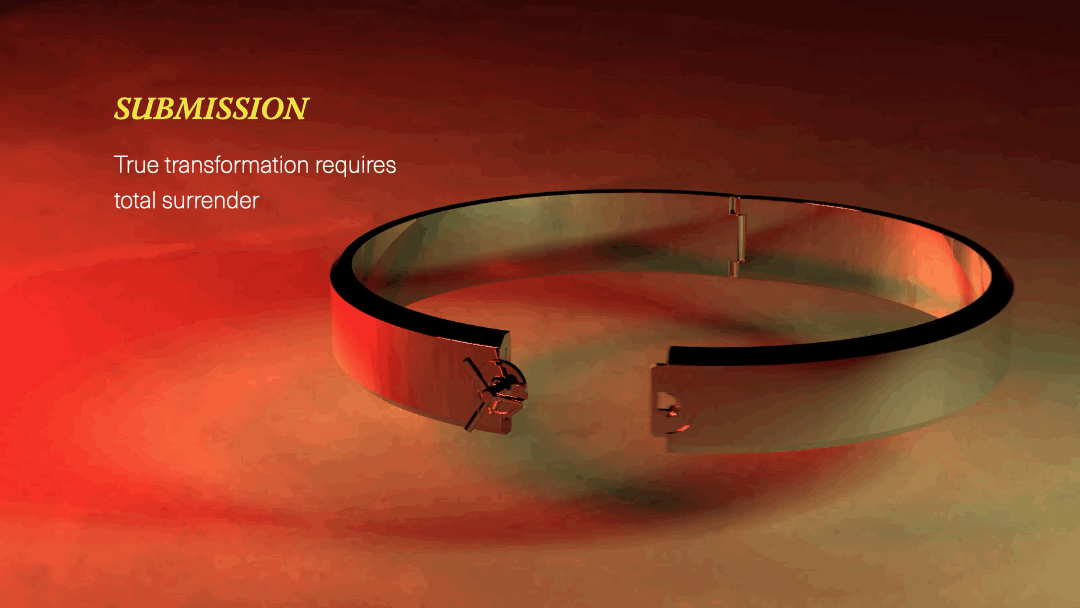
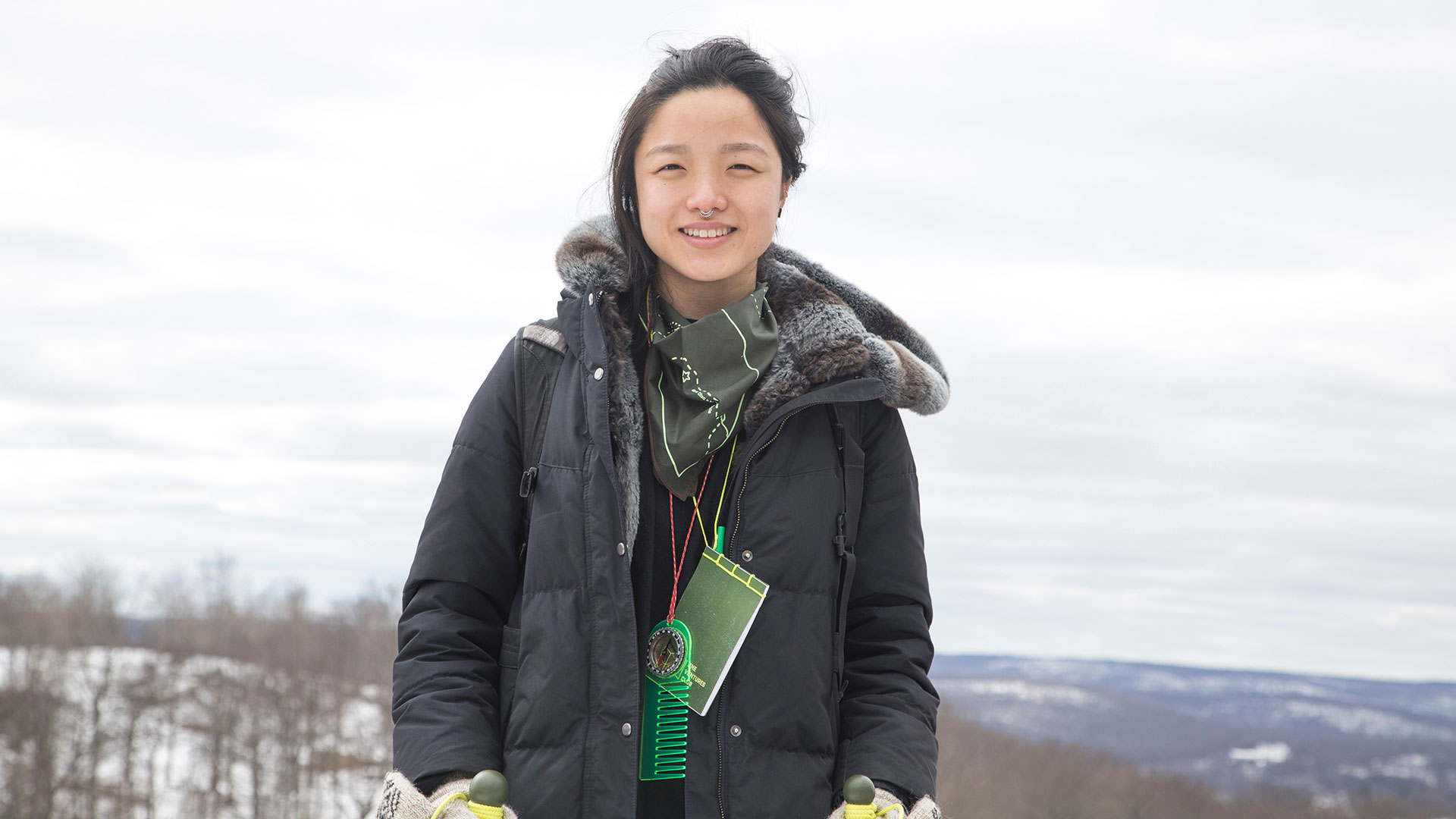
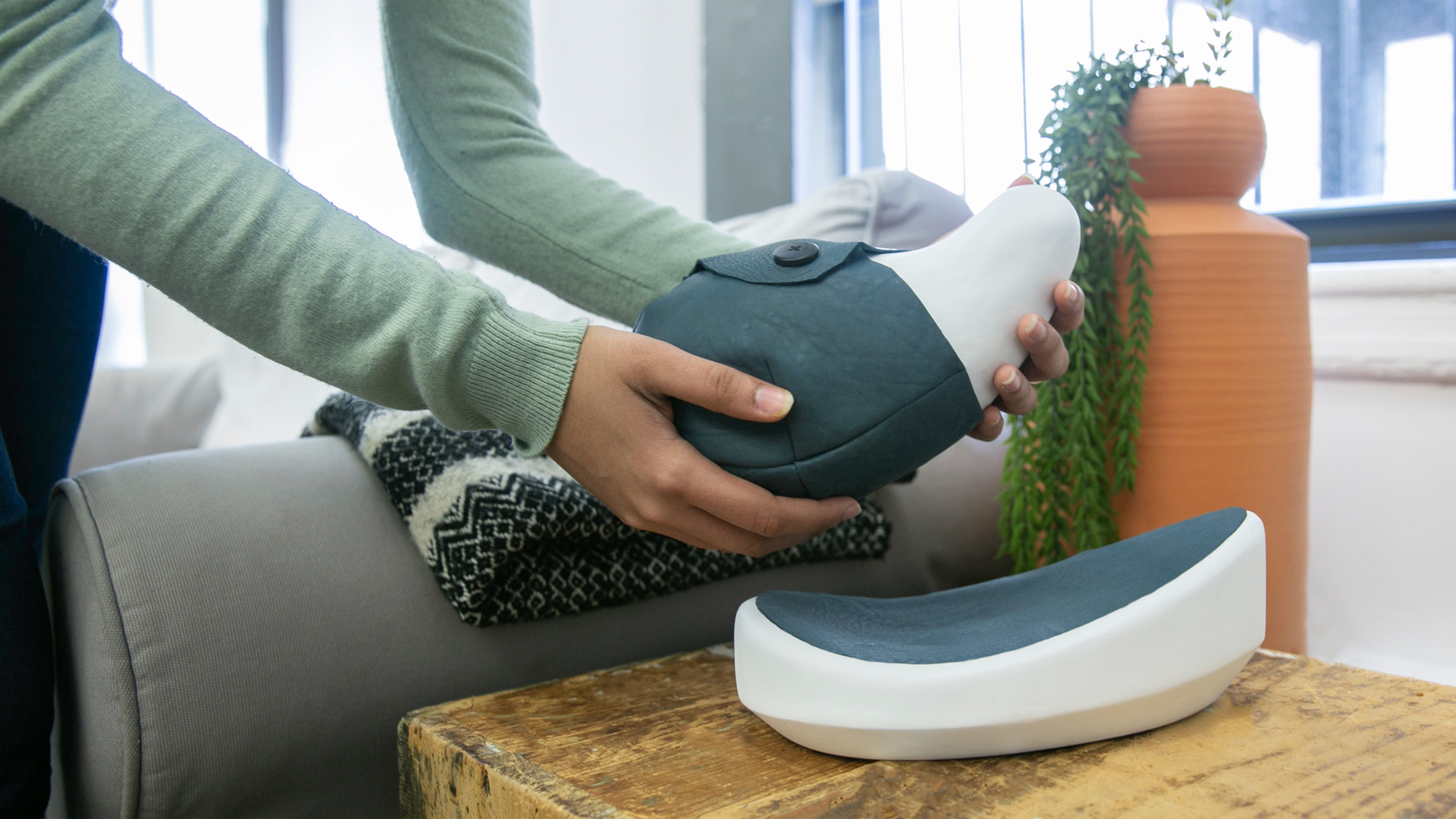
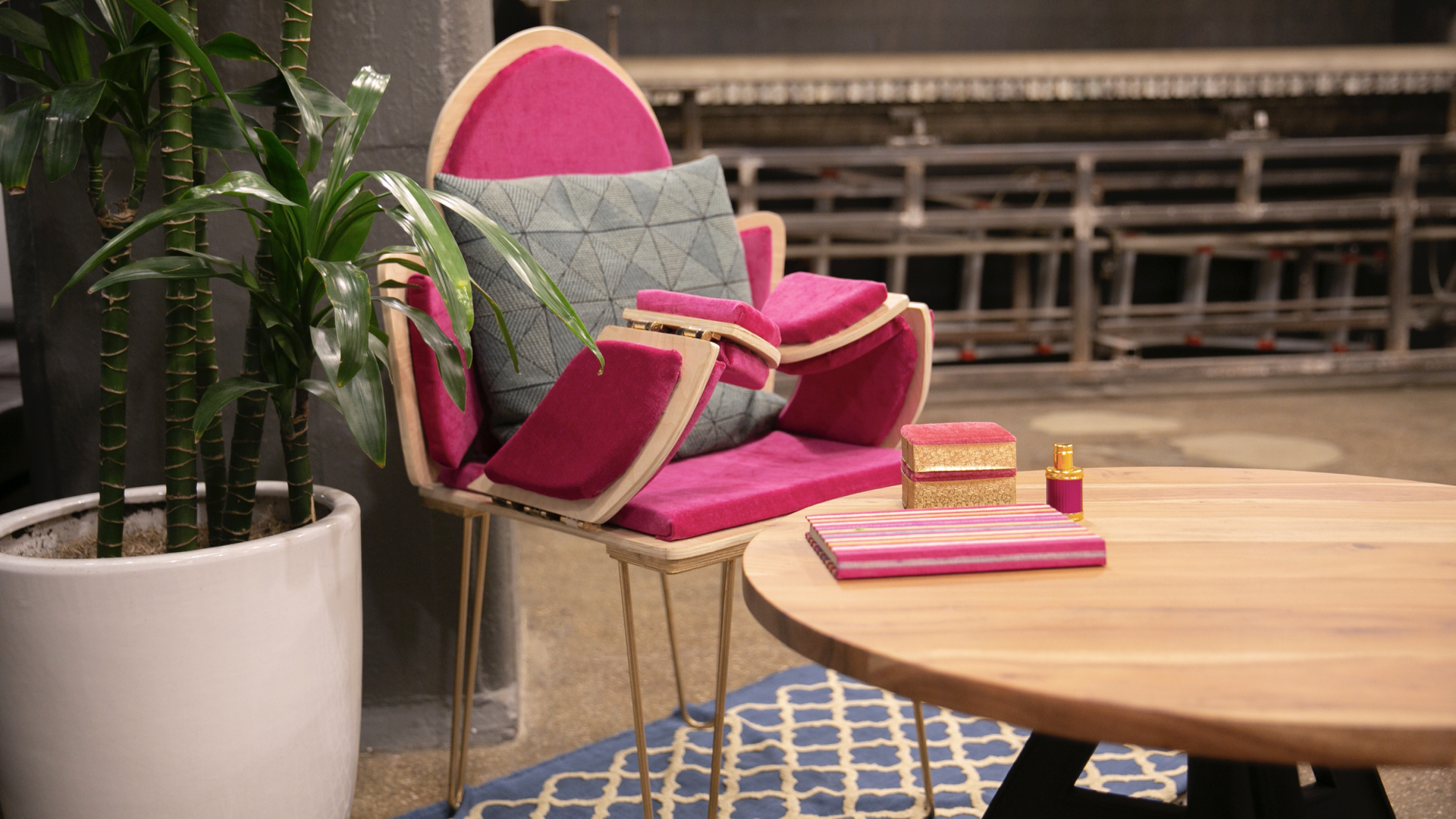
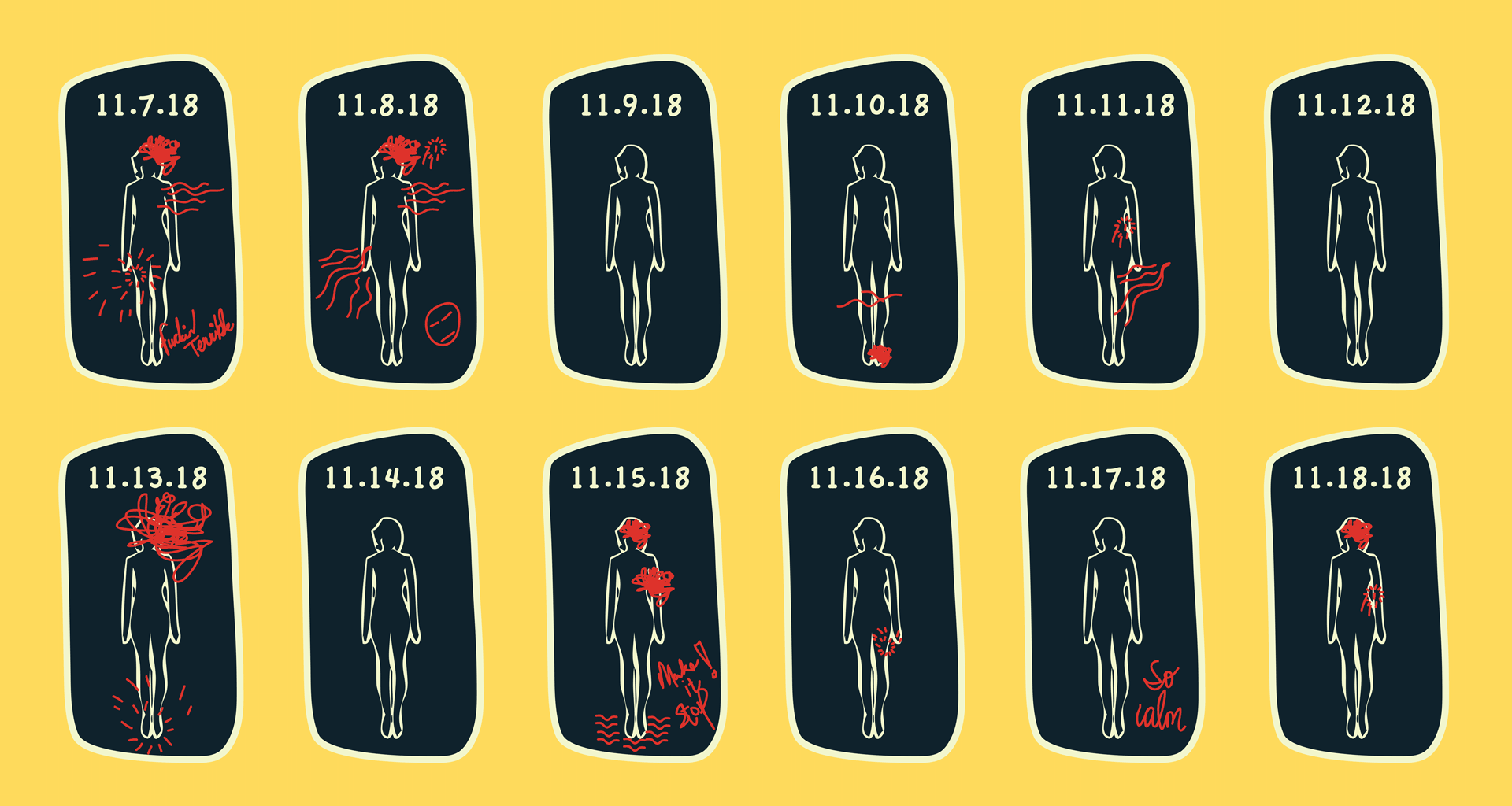

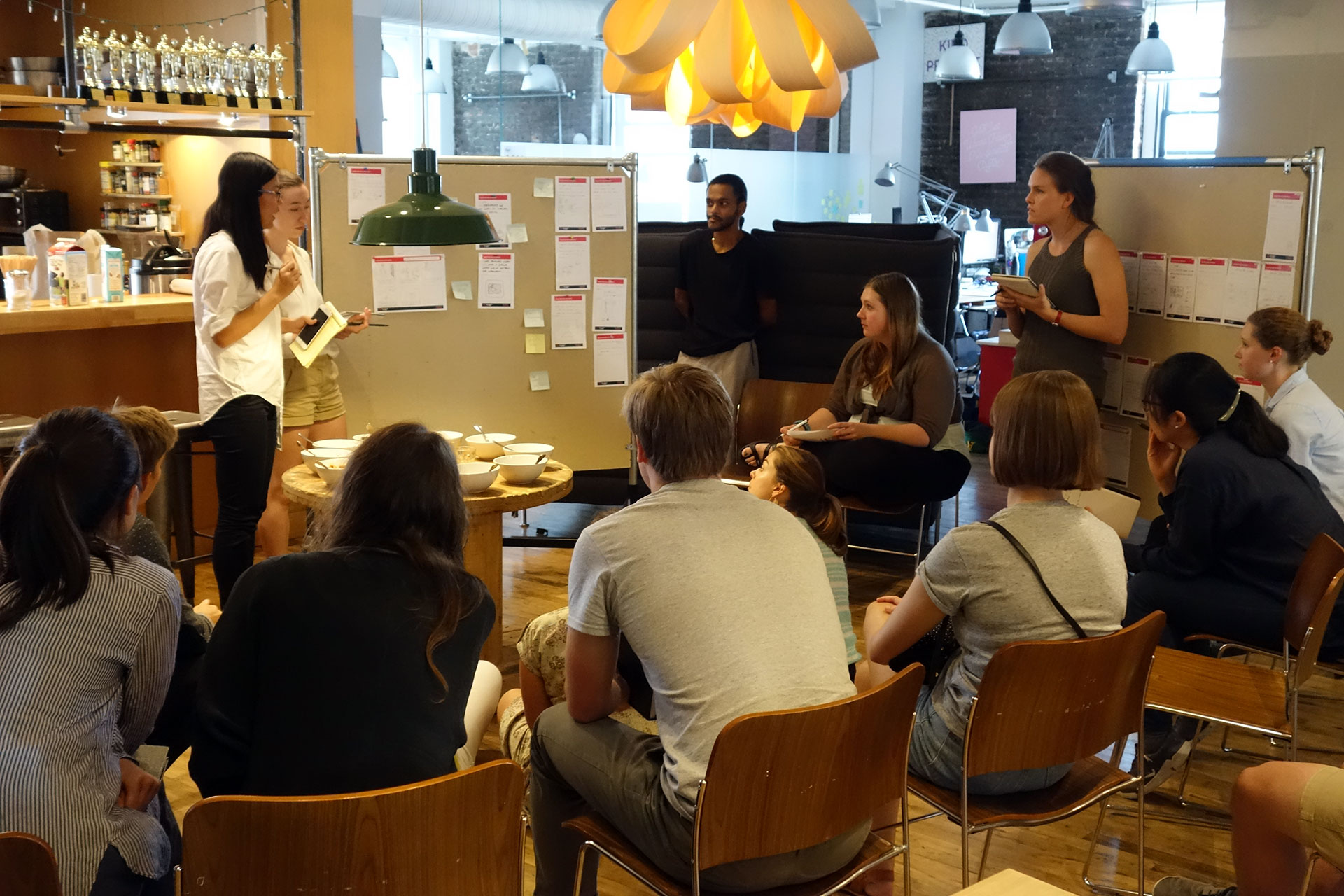





May Shuchang Sun's master's thesis, Her Sense: Women, Technology and Intervention, is aimed at helping women in the workplace by creating technology that builds confidence. The thesis work grew from her initial question: "How can we build and strengthen the relationship that women have with technology?"